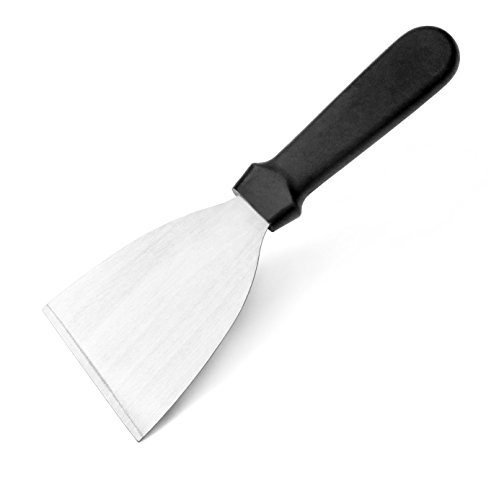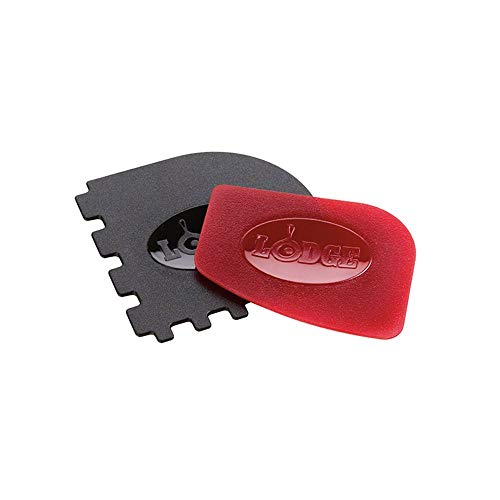Grill Scrapers: The Unsung Hero of BBQs

- 1. Grill Scrapers: The Unsung Hero of BBQs
- 1.1. What Are Grill Scrapers?
- 1.2. Types of Grill Scrapers
- 1.2.1. Wire Grill Brushes
- 1.2.2. Wooden Grill Scrapers
- 1.2.3. Metal Grill Scrapers
- 1.3. Benefits of Using Grill Scrapers
- 1.4. Choosing The Right Grill Scraper
- 1.4.1. Material
- 1.4.2. Type of Scraper
- 1.4.3. Size and Shape
- 1.4.4. Handle Design
- 1.4.5. Safety Features
- 1.4.6. Ease of Cleaning
- 1.5. Tips for Proper Grill Scraper Usage
- 1.6. Conclusion
When it comes to outdoor cooking and the sizzling allure of a barbecue, one essential tool often goes unnoticed—the grill scraper. While grilling enthusiasts often invest in top-notch grills, quality meats, and an array of seasonings, the humble grill scraper plays a crucial role in maintaining hygiene, ensuring even cooking, and extending the life of your grill. In this article, we'll delve into the world of grill scrapers, exploring their types, benefits, and tips on proper usage.
What Are Grill Scrapers?
Grill scrapers serve the purpose of cleaning and upkeeping grills, especially those employed in outdoor cooking. These tools are indispensable for eliminating accumulated grease, food remnants, and other debris on the grill grates during the cooking process. Regular cleaning not only extends the lifespan of your grill but also ensures uniform cooking and prevents the absorption of undesirable flavors into your food.
Diverse in design, grill scrapers typically comprise a handle and a scraping mechanism. The scraping component often takes the form of a metal or wire brush, sometimes equipped with a scraper blade or a combination of both. This brush or scraper is employed to scrub and remove residue from the grates. Some grill scrapers feature extended handles to keep hands away from the heat, while others may offer replaceable brush heads for convenient maintenance.
Types of Grill Scrapers
Wire Grill Brushes
One of the most common types, wire grill brushes feature sturdy bristles designed to scrape away charred residues and food particles. They are suitable for most grill grates, including cast iron and stainless steel. However, users should exercise caution to prevent any bristle breakage that might pose a safety hazard.
Wooden Grill Scrapers
Crafted from hardwoods like cedar or oak, wooden grill scrapers are an eco-friendly alternative. They typically feature a blade or grooves that conform to the grill grates, effectively scraping away debris without the risk of wire bristle contamination.
Metal Grill Scrapers
Metal scrapers are usually made of aluminum or stainless steel and come in various shapes and sizes. They are durable, easy to clean, and offer efficient scraping, making them a popular choice among grill masters.
Benefits of Using Grill Scrapers
- Maintaining Hygiene: Regular use of a grill scraper helps prevent the buildup of bacteria and germs on your grill grates. Removing charred residues and food particles ensures that each grilling session starts with a clean surface.
- Even Cooking: A clean grill surface promotes even heat distribution, preventing hot spots and ensuring that every inch of your grill is ready to cook. This results in better-tasting and perfectly cooked food.
- Extending Grill Lifespan: Continuous exposure to high temperatures and residues can wear down your grill over time. By using a scraper regularly, you reduce the risk of corrosion and extend the lifespan of your grill.
- Safety First: Wire grill brushes have come under scrutiny for the potential risk of bristle breakage, leading to ingestion and injury. Non-wire alternatives like wooden and metal scrapers provide effective cleaning without this safety concern.
Choosing The Right Grill Scraper
When selecting the ideal grill scraper for your requirements, it's crucial to take into account various options available in the market and consider several factors.
Material
The material of the grill scraper is a primary consideration. Common materials include stainless steel, brass, and wooden handles. Stainless steel is durable and resistant to rust, making it an excellent choice for the scraper's blade. Brass is softer than steel, making it less likely to scratch the grill grates. Wooden handles provide a comfortable grip, but ensure they are heat-resistant and durable.
Type of Scraper
There are different types of grill scrapers available, each with its advantages. Wire brushes, grill stones, and scraper blades are common options. Wire brushes are effective for removing stuck-on debris, while grill stones are abrasive and work well on flat surfaces. Scraper blades, often made of metal, offer precision and control in cleaning.
Size and Shape
Consider the size and shape of the scraper in relation to your grill. A scraper with a wide blade might be more efficient for larger grills, while a compact scraper may be suitable for smaller ones. The shape of the scraper should match the contours of your grill grates for effective cleaning.
Handle Design
The handle design is crucial for comfortable use. Look for a scraper with an ergonomic handle that provides a secure grip. Some handles come with additional features like heat resistance, non-slip materials, or hanging loops for convenient storage.
Safety Features
Safety is paramount when using a grill scraper. Some models come with built-in safety features such as a long handle to keep your hands away from the heat or a blade guard to prevent accidental cuts. Ensure that the scraper you choose minimizes the risk of injury during use.
Ease of Cleaning
Consider the ease of cleaning the scraper itself. Opt for a model with removable and dishwasher-safe components for hassle-free maintenance. Some scrapers also come with features like self-cleaning mechanisms to simplify the cleaning process.
Tips for Proper Grill Scraper Usage
- Preheat the Grill: Before scraping, preheat your grill for 10-15 minutes. This makes it easier to remove residues and ensures a more effective cleaning process.
- Choose the Right Scraper: Consider your grill type and personal preferences when selecting a scraper. Wire brushes are versatile, but wooden and metal scrapers offer alternative benefits.
- Scrape After Every Use: Develop a routine of cleaning your grill after each use. This prevents the accumulation of stubborn residues and simplifies the cleaning process.
- Inspect for Wear: Regularly inspect your grill scraper for signs of wear, especially with wire brushes. Replace any worn-out or damaged scrapers promptly to maintain effectiveness and safety.
Conclusion
The grill scraper assumes the role guaranteeing that every barbecue encounter is not only delectable but also maintains a standard of safety and hygiene. Whether you opt for the timeless wire brush, the environmentally conscious wooden scraper, or the sturdiness of a metal alternative, integrating regular grill scraping into your routine is a minor gesture with significant impact on the durability and performance of your grill. Therefore, the next time you ignite your barbecue, take a moment to acknowledge the unassuming grill scraper—the indispensable tool that ensures your grates remain spotless and your culinary creations irresistibly mouthwatering.











